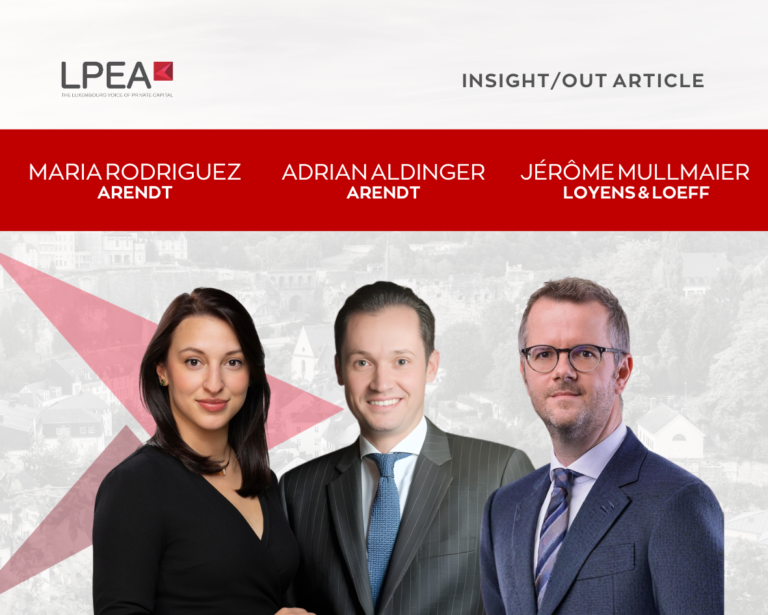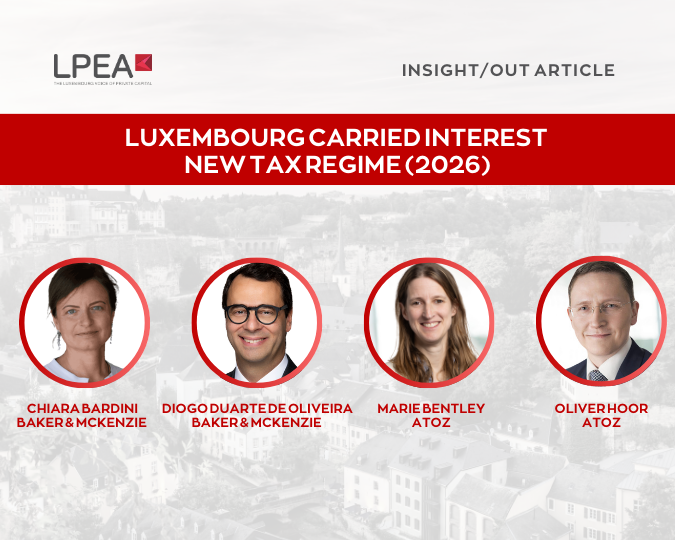By Filip Suchta, Director at Q Securities as published in Insight Out #29.
Introduction
For now, Luxembourg’s position as a primary global investment fund centre is indisputable. However, in an ever-changing world, are there potential challenges to the Grand Duchy’s crown, and how can its top spot be maintained?
Luxembourg occupies the top spot for now – but could that change?
Luxembourg has long been the primary jurisdiction for funds, fund managers, and all other entities operating in the asset management industry. When our firm decided to build on our operation in Poland and expand abroad, the decision about where to branch out was obvious – if we wanted to grow, Luxembourg was the place to be. But the question was, would a company facing a similar expansion decision 10 years later still view Luxembourg as the first choice?
Luxembourg’s position as a leading fund domicile can be attributed to many factors; the high quality of its legal and regulatory framework, its financial and political stability, and a wide selection of excellent service providers. The critical factor has been Luxembourg’s consistency: knowing what you are getting for your money if you choose Luxembourg as the hub for your fund.
Being the first-choice fund jurisdiction does not mean that Luxembourg is perfect. To use an example from another industry, the fact that the iPhone is the most popular choice for smartphone users does not mean it doesn’t have flaws – some will complain about its price, others will point to the lack of specific features available on other brands. Let’s look at what Luxembourg fund ‘users’ might be concerned about.
Being good does not mean you can’t be better
Luxembourg is not equally attractive to all. The quality of the Luxembourg experience from a fund’s perspective largely depends on its size and status. Fund managers with billions of Euros under management have fewer reasons to complain – they can select from multiple top-tier service providers to compete for their business, and the quality and efficiency of services leaves little to criticise.
The situation can be different for emerging fund promoters just starting up in Luxembourg. In their case, the Grand Duchy can be less welcoming. When we launched in Luxembourg three years ago and started providing depositary services, to our surprise many prospects admitted to having difficulties finding service providers and felt they were not getting value for their money. We were pleased that we could help them out and onboard them as clients, but what became evident was that for certain groups of fund managers, setting up shop in Luxembourg is a challenge. This seems counterintuitive, considering the abundance of service providers in the Grand Duchy.
What are the underlying causes of this unfortunate phenomenon? It boils down to resources. Service providers have a limited talent pool available and need to consider the operational and compliance costs to service each client. Many decide to turn down smaller funds because of the ever-growing need to meet more rigorous requirements when taking on new clients. The largest service providers rely on their outsourcing centres in Poland, Malta or elsewhere. But for the ‘middle-class’ and small players, this is not a viable option due to costs, so difficult choices have to be made about which clients to accept.
The resource problem is also tangible in more universal sectors like banking services, an issue Luxembourg has been facing for quite some time now. In the past, Luxembourg credit institutions’ appetite to provide services to corporate clients – including investment funds – has fallen dramatically and has been widely discussed in the Grand Duchy. Some even point out that this reflects poorly on Luxembourg’s reputation, not only as a fund hub but, more generally, as a place for doing business. In that regard, recent initiatives undertaken by industry associations, like the ABBL, aiming to solve this issue, are a step in the right direction. One can hope that all stakeholders will continue to work together, to make sure that opening a bank account in Luxembourg is not an impossible feat.
One could argue that the relative inaccessibility of Luxembourg for emerging funds is not a bug but rather a feature of its fund ecosystem, evolving as a fund jurisdiction accessible only, in principle, to the world’s most prominent fund promoters. For some, it might seem reasonable – after all, the resources of service providers are not limitless and economically speaking, it makes sense to focus on the funds with the largest assets.
In the long term, however, such an approach may lead to Luxembourg missing out on the next unicorn, that could decide on another jurisdiction, if their initial experience with the Grand Duchy is disappointing.
How can Luxembourg keep its edge?
There are two critical factors for Luxembourg to keep the crown.
To maintain the qualities that made it a first-choice fund domicile originally, as discussed earlier, it needs to continuously modernise its business offering. Last year’s bill, which updated the Luxembourg fund toolbox, was welcomed by the market and similar initiatives aimed at enhancing the regulatory and legal framework in line with global trends and investor expectations, should be the rule, rather than the exception.
Limited resources should not only be addressed by fortifying and expanding the talent pool and attracting people from abroad. In some areas, Luxembourg lags behind its competitors when embracing innovation and technology. Streamlining processes, implementing specialised IT solutions, and engaging reputable partners to decrease time spent on paperwork, while increasing the efficiency of client servicing, will help to ensure that there’s room for everyone who is interested in setting up funds in Luxembourg.
What matters most in ensuring Luxembourg stays at the top is continued awareness of the ever-changing financial world and staying ahead of the curve, instead of reacting to shifts in the market. As rightly pointed out by author Robert H. Waterman Jr., “Market leadership is not given, it is earned”.




